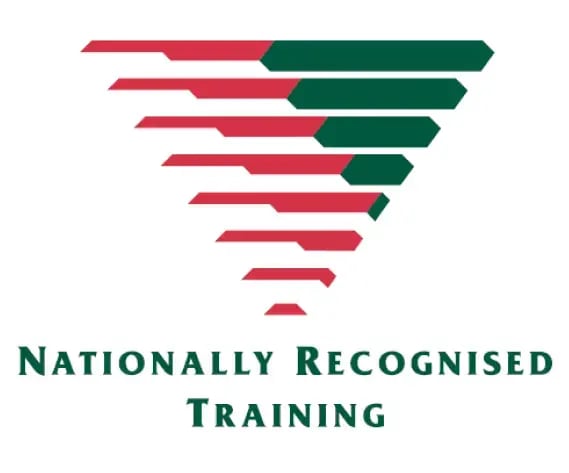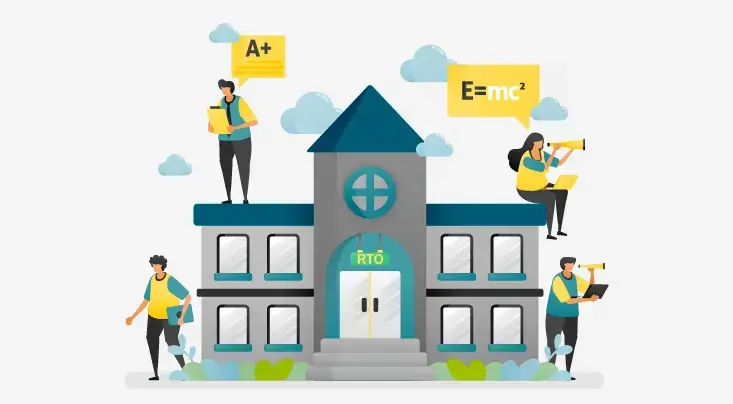Marketing and promotional activities are essential aspects of an RTO’s success. They are the main channels for achieving business growth and should correspond to a strong and effective marketing strategy. At the same time though, they must adhere to several compliance requirements, scattered across different resources and organisations: Regulators, state funding bodies and local consumer protection laws.
In this article, we look at some common non-compliances identified during audit, with respect to the marketing and advertising requirements outlined in the Standards for Registered Training Organisations (RTOs) 2015. All RTOs registered with the National Regulator (ASQA) must satisfy the requirements set out in Clause 4.1 of the Standards, which apply across a range of marketing methods and materials such as brochures/flyers, websites, social media, online advertisements and third party recruiting.

RTO Code
The RTO Code is the registration identifier assigned to every RTO on the National Register (www.training.gov.au). It must be included in all your marketing resources and materials. RTOs often include their legal/trading name and logo, but they miss out on this requirement, especially when promoting their training products digitally such as via social media posts and paid ads. Including your name and RTO Code as part of your social media page name will ensure that every post you make or shared by others, will display the required information. Alternatively, you can create a logo which contains your name and RTO Code and adopt it as your basic social media account image. This will ensure that every activity conducted by your RTO account on social media platforms will satisfy this requirement. When promoting on television or radio advertising, your RTO code can be included as a disclaimer at the end of the advertisement.
Consistency with your TAS
The course information displayed on your marketing and promotional material must align with your training and assessment strategies. Regardless of qualifications, skills sets, or standalone units of competency, all material must include the code and full title of the training product to allow prospective students to verify the information and reduce confusion in the marketplace. You must also include details about the amount of training and any variations or additions applying to specific learner cohorts, as specified in your Training and Assessment Strategies. Past ASQA reviews have found that marketing headlines of short-duration programs may indicate non-compliances in regards with the requirement to provide quality training and assessment. It is critical when advertising your products to provide accurate information about the training duration, always in consistency with your TAS.

Photos and testimonials
You must obtain student consent if you wish to use information about them in your marketing and advertising material (e.g. images on social media). The evidence of consent must be in a legible format and available to auditors upon request. A release clause in your enrolment form, where students agree or disagree to the use of their photos, is a safe practice of obtaining consent and retaining evidence of it. Testimonials from industry experts is another great way of promoting your training products. These testimonials may highlight the fact that previous graduates have gained employment with an industry stakeholder, however they must be accompanied by a statement which clearly indicates that your RTO does not guarantee employment upon satisfactory course completion. The evidence of consent, when referencing another person or organisation in your materials, could include an exchange of email, a signed release form or a letter granting permission to use the relevant material.

NRT Logo
The NRT logo is a trademark that confirms training is nationally recognised. This logo can only be used in relation to nationally recognised qualifications or units of competency and not in relation to any other training products or services such as non-accredited courses, pre-accredited training programs and CRICOS courses. The most common non-compliance in relation to this requirement is the inclusion of the NRT logo in your website or social media page header or footer. This could be misleading if both accredited and non-accredited products are listed on your webpages. You must ensure that the NRT logo is only displayed on webpages associated with accredited training. A copy of the logo can be obtained simply by emailing ASQA or a State Regulator, whichever your RTO is registered with.

Third Party Marketing
RTOs can engage other organisations under a third-party arrangement to promote courses and for the recruitment of students. Third parties that provide these services, such as brokers or recruitment agencies, must accurately and honestly represent the principal RTO in all of their marketing and enrolment activities. Therefore, if your RTO uses any third parties for the purpose of marketing and recruiting, you must provide them with current and accurate information about the training and assessment services that are offered. There are two important things to remember when your RTO enters into a third party arrangement: a) ASQA must be notified within 30 days of your RTO entering into, or cancelling, a written agreement with a third party and b) RTOs cannot use a third party arrangement to avoid responsibility for compliance and are wholly responsible for all services provided on their behalf by other parties.

Government Subsidies, Loans and Fees
Where a course is paid via a loan or is offered under a funding subsidy or is offered with other financial support arrangements, RTOs must inform students about the applicable government loan or subsidy (e.g. VET Student Loans, Skills First, User Choice etc.), the debt incurred by the student, payments to be made and interest and other charges incurred, and any loss of entitlement that may occur as a result of a student undertaking a course associated with a funding subsidy. Before paying any fee or entering into a loan agreement for training and assessment services, students must have a clear understanding of the product they are purchasing. Past audit reviews have found that not all of this information was always available at the point of payment or finalisation of the loan agreement. Training providers approved to enrol students into training supported by the VET Student Loans program must ensure that their marketing practices meet the additional requirements outlined in the VET Student Loans Rules 2016.

We strongly recommend that your organisation has a marketing and advertising policy in place. This policy should outline the procedures and the quality framework for monitoring, reviewing, and approving all of your marketing and promotional material. This responsibility should be delegated to personnel that are familiar with the standards and any other compliance requirements associated with your promotional and recruiting business processes. Your marketing material must remain current and accurate and any actions you take towards this direction should be documented in your continuous improvement register.
- Tags: ASQA, Compliance, Consultancy






Feel Free to Leave a Comment
Leave a Reply
Your email address will not be published. Required fields are marked
Share this post with your colleagues